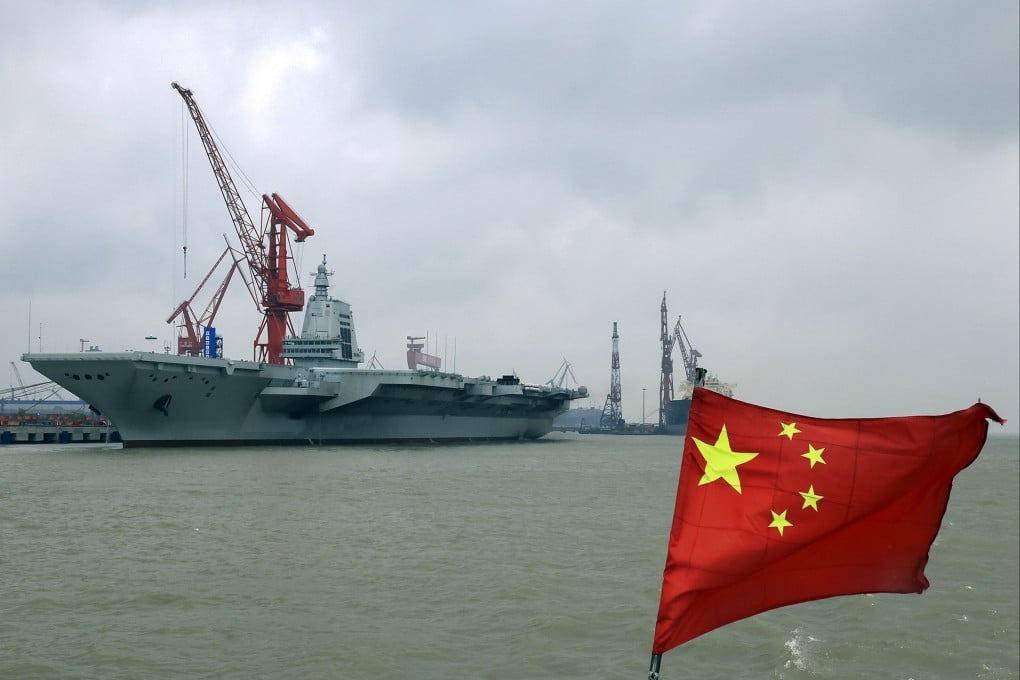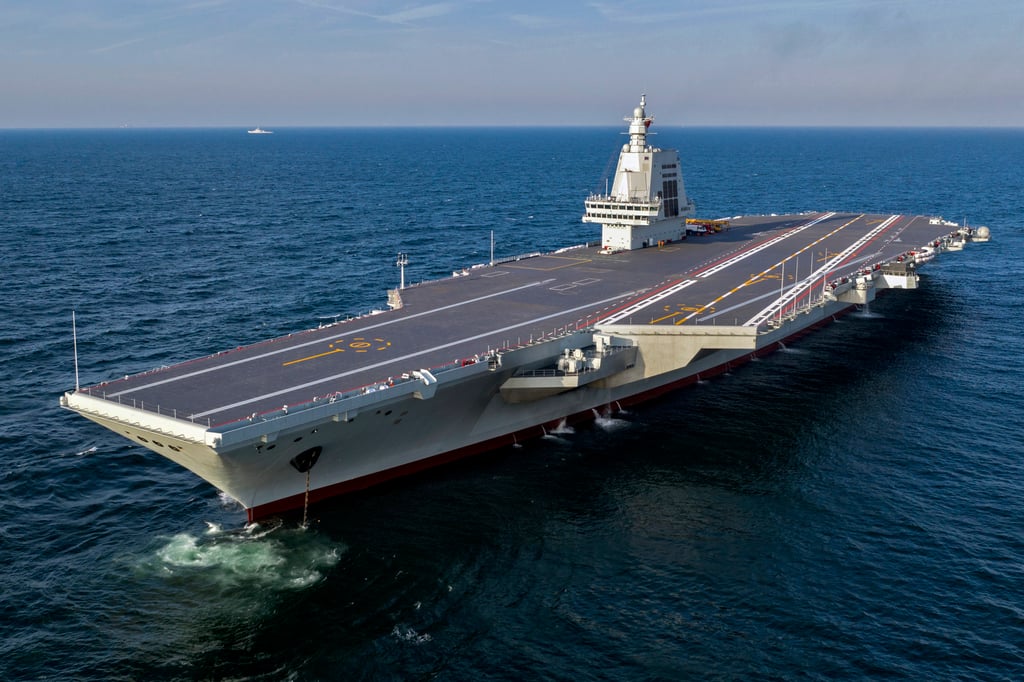China’s new aircraft carrier pushes India, Japan, South Korea to upgrade: ‘source of anxiety’
- China launched its third aircraft carrier, the Fujian, last month and aims to have six carriers by the end of 2035
- A former Indian naval officer says China’s assertiveness at sea is putting pressure on other Asian nations to strengthen their naval capabilities

China currently operates two aircraft carriers, the Liaoning and the Shandong. It launched the Fujian, a next-generation 80,000-tonne aircraft carrier larger than those operated by India or Japan, last month.

Former Indian naval officer C. Uday Bhaskar said China’s assertiveness was putting pressure on Asian nations to build out their naval capabilities.
“China is seen as a source of anxiety by some Asian nations, including India. There is concern about China’s revisionist agenda and this can rapidly morph into a threat ,” Bhaskar said.
Indian Defence Minister Rajnath Singh last month said India would soon commence building its third aircraft carrier. Analysts say a third aircraft carrier is essential for the Indian navy to match China’s capabilities.
Bhaskar, a director at the New Delhi-based Society for Policy Studies think tank and an honorary fellow of India’s National Maritime Foundation, said Japan and South Korea were seeking ways to engage Beijing to establish a practical and peaceful coexistence.
“These nations see their navies as insurance for the long term, if they decide to go down that path [engage in a war].”